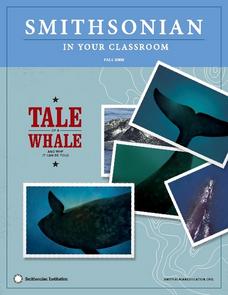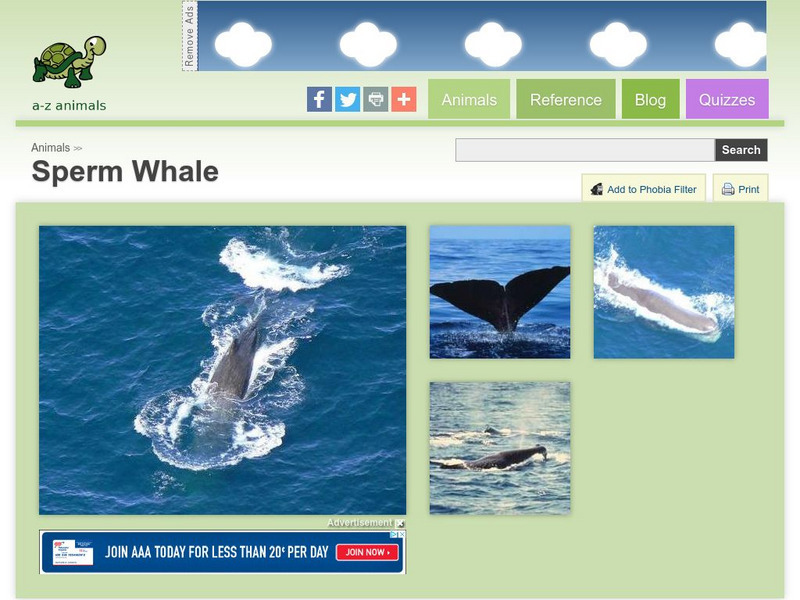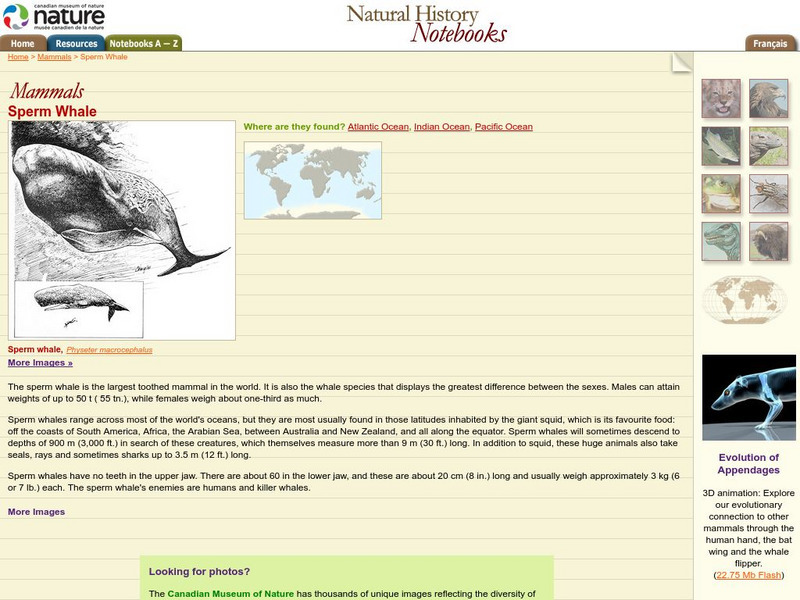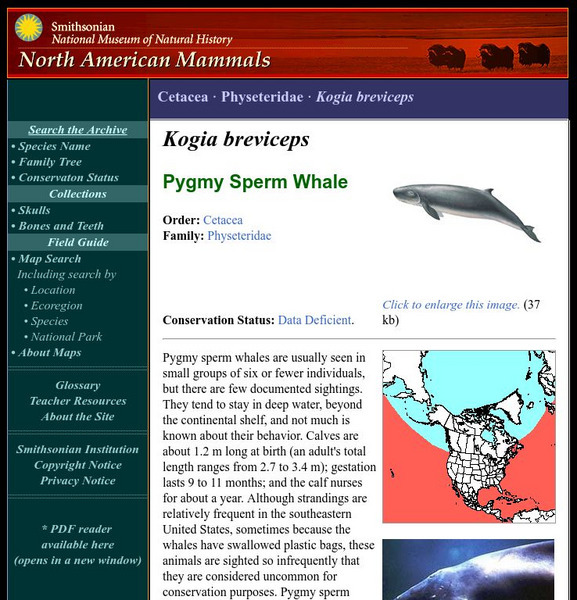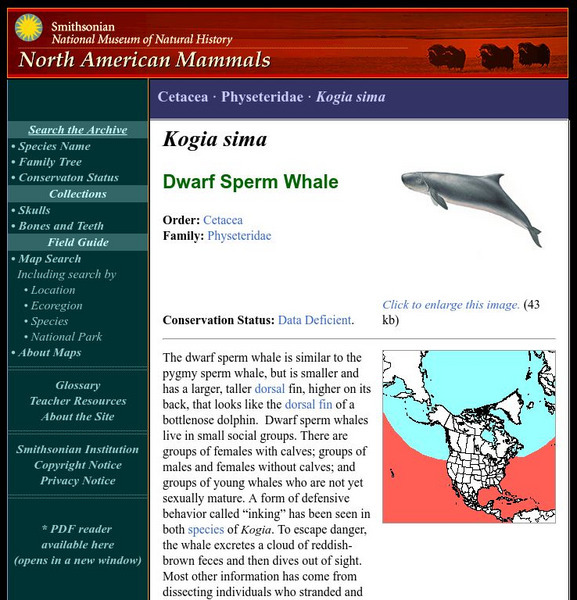Curated OER
A Tale of a Whale: And Why It Can Be Told
Middle schoolers examine the characteristics of particular whales. In this whale characteristics lesson, students discover the methods scientists use to track whales and attempt to match the unique pattern of callosities themselves. A...
Sheppard Software
Sheppard Software: Sperm Whales
This site gives an in-depth description of a sperm whale, including its behavior, appearance, reproduction, and classification. The site includes photos and illustrations and an interactive quiz to test your understanding.
A-Z Animals
A Z Animals: Animal Facts: Sperm Whale (Physeter Macrocephalus)
This entry identifies the defining characteristics of the Physeter Macrocephalus, more commonly known as the sperm whale.
Enchanted Learning
Enchanted Learning: Sperm Whale
This clear and concise resource on sperm whales includes a diagram and information on its diet and echolocation.
Smithsonian Institution
National Museum of Natural History: Search the Giant Squid
This site explores, in detail, what is known about the Giant Squid, and current efforts to uncover the squid in its natural habitat.
Scholastic
Scholastic News: Swimming With Whales
A group of whales was recently discovered to be swimming with a dolphin, who appears to be accepted as part of the group. This is a rare activity for whales.
Canadian Museum of Nature
Canadian Museum of Nature: Sperm Whale
Briefly described are the appearance, characteristics and location of the Sperm Whale, the largest toothed mammal in the world.
Smithsonian Institution
National Museum of Natural History: American Mammals: Pygmy Sperm Whale
Pygmy sperm whales are usually seen in small groups of six or fewer individuals, but there are few documented sightings. They tend to stay in deep water, beyond the continental shelf, and not much is known about their behavior. Learn...
Smithsonian Institution
National Museum of Natural History: American Mammals: Sperm Whale
Sperm whales can dive deeper than 1.6 km and stay under for 90 minutes, although shorter, shallower dives are more usual. Learn more about the Physeter catodon (Physeter macrocephalus), more commonly known as a Sperm Whale, in this...
Smithsonian Institution
National Museum of Natural History: American Mammals: Dwarf Sperm Whale
The dwarf sperm whale is similar to the pygmy sperm whale, but is smaller and has a larger, taller dorsal fin, higher on its back, that looks like the dorsal fin of a bottlenose dolphin. Dwarf sperm whales live in small social groups....


